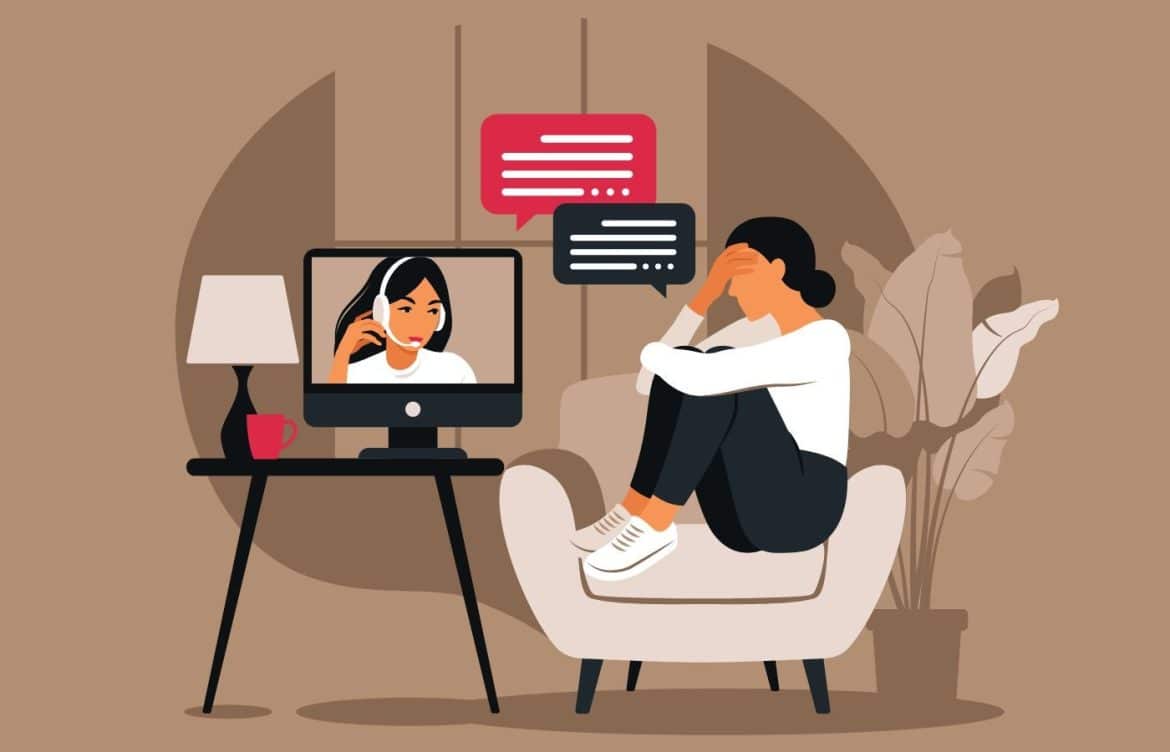In our digitally connected world, mental health support has transcended physical boundaries. From forums to therapy app sessions, individuals seeking support can now access many resources without leaving the comfort of their homes.
Online mental health services not only offer convenience but also anonymity, opening the doors for many who might otherwise forgo seeking help. Below, we delve into the various dimensions of digital mental health assistance.
The Rise of Online Support Groups for Mental Health

The emergence of online support groups caters to a wide array of mental health conditions. These digital gatherings offer a space for individuals to talk to someone online, share their experiences, instill compassion, and find communal comfort without geographic constraints. Talking to someone about your mental health removes the stigma and encourages other people to open up about their mental health. The flexibility of online groups allows participants to access support anytime, making it a more approachable option for those with busy schedules or mobility issues.
Notably, online support groups usually have moderators who can provide credible information and safely and respectfully guide discussions. This oversight helps maintain a constructive environment where all members feel heard and validated and improves their active listening skills. Moreover, the anonymity available in these groups can decrease the pressure participants might feel when they chat about sensitive personal matters.
Some may question the effectiveness of online support systems. However, research indicates that participating in online communities can reduce feelings of isolation, emotional distress, and anxiety. The key lies in creating connections and a sense of belonging among peers who understand the struggles of mental health challenges.
Online Therapy Platforms: Tips and Best Practices
Online therapy platforms are one of the best ways to receive psychological guidance. They connect clients with licensed therapists through video calls, messaging, or phone sessions. When selecting an online therapy service, you must assess the platform’s credibility, the therapists’ qualifications, the terms of service, and the privacy policies to protect your personal information.
After choosing a platform, setting clear goals for therapy can steer sessions toward targeted outcomes. Be upfront with your therapist about your expectations and the areas you wish to work on. Communication is key; hence, if a certain approach isn’t working, you must inform your therapist to tweak the process to better suit your needs.
In addition, consistency is important in therapy. Regular sessions contribute to building a strong therapeutic relationship, which is vital for progress. It’s also beneficial to prepare for sessions by reflecting on recent experiences or noting points you wish to discuss to make the most out of the time spent with your therapist.
The Role of Mobile Apps in Mental Health Well-being

Mobile apps have become instrumental tools in supporting mental health and well-being. They offer various features, from mood tracking and mindfulness exercises to stress management techniques. Apps can prompt users to engage in healthy habits, reinforce positive behaviors, and contribute to mental wellness.
Accessibility is one of the greatest advantages of mental health apps—helping users manage their mental health on the go. People can tap into resources whenever needed, whether during a lunch break or a late night when traditional services may not be available. This round-the-clock availability can be especially reassuring during times of acute stress or anxiety. Having an online friend to support you during tough times is also another benefit of mobile apps.
While apps can provide substantial support, they should not replace professional advice for those who need it. These tools must be used as part of a broader care strategy, ideally in conjunction with professional guidance. Users should remain critical of the content and ensure that any advice provided is evidence-based and comes from reputable sources.
Overall, the digital revolution has significantly impacted how we approach mental health support, breaking down barriers and forging new paths to care. As virtual connections evolve, their potential to supplement and enhance traditional mental health services becomes increasingly clear. By embracing the benefits and addressing the challenges, we pave the way for a future where mental well-being is accessible to all, regardless of circumstances.

